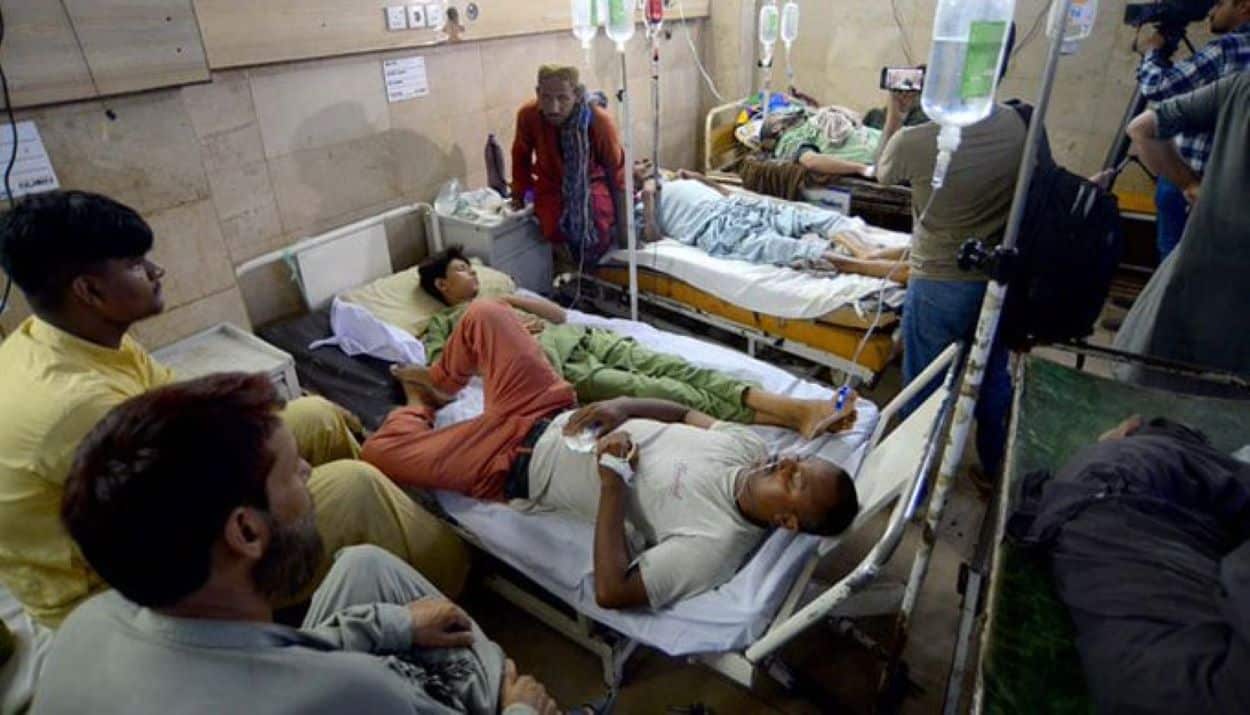Vector-borne diseases such as dengue, malaria, and chikungunya are causing a surge in patient numbers at hospitals across the city.
Medical experts report that approximately 50 patients arrive daily at the Jinnah Postgraduate Medical Center (JPMC) and Civil Hospital with cold, fever, and body aches symptoms. Many of these cases are suspected of dengue, malaria, or chikungunya.
The Sindh Health Department has identified 411 suspected chikungunya cases in the region, with 153 confirmed through diagnosis. This year, Sindh has seen 1,724 dengue cases, 1,484 of which occurred in Karachi alone, including one fatality.
Read: Sindh Health Minister Reports 140 Chikungunya Cases in Sindh
Furthermore, the department reported 222,239 malaria cases this year, with 1,768 diagnosed in Karachi.
Chikungunya cases are also escalating, prompting increased hospital visits. However, sources indicate that chikungunya testing kits are currently unavailable in government hospitals.
Dr. Bilal Aheed, a family physician at Agha Khan Hospital, explained the symptoms of these viral infections, including high-grade fever, body aches, joint pain, and skin redness or swelling. “These symptoms are typically caused by the Aedes mosquitoes, specifically Aedes aegypti and Aedes albopictus,” he noted.
These mosquitoes are prevalent in urban settings and breed in stagnant water found in open containers, puddles, or water tanks.
Preventive Measures:
- Remove stagnant water near residences.
- Securely cover water containers.
- Use mosquito repellents and bed nets.
- Wear long-sleeved clothing early in the morning and evening when mosquito activity peaks.






